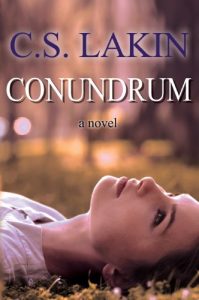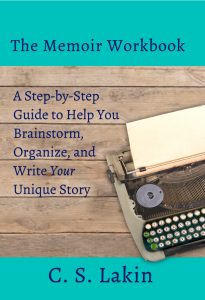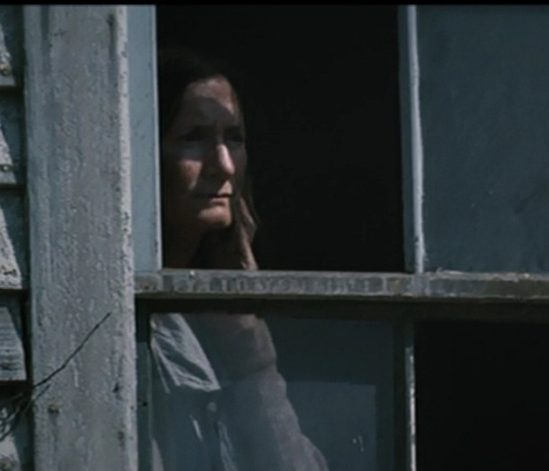Protecting Yourself and Others When Writing a Memoir
Here are some more excerpts from my new book, The Memoir Workbook. If you’ve thought about writing a memoir, you need to think about how you will protect yourself and others from emotional or legal harm .
You may not have considered that writing about your life could be a dangerous endeavor. The degree of danger could vary from emotional distress to legal action to threats on your life. Hopefully, your story won’t put you in anyone’s crosshairs, but for some baring the truth, it has done just that.
But for most people beginning the journey of writing memoir, the greatest threat is to their own heart. And from their own heart.
As noted in the Introduction, a journey into the heart can open the door to pain, anger, hurt, and other emotions. While it may be natural to shy away from reliving painful experiences, if you want readers to feel any intense emotions you felt as you went through those moments, you will have to dredge them up yourself and articulate them to faithfully convey them and help readers empathize with your experiences.
Here are three bits of advice on this matter:
- Remind yourself that these are only memories. They are void of power. They are like a shadow, not the substance, of past pain. You have already survived. You are already victorious. You control the story.
- Keep readers safe by protecting them as they read. How do you do that? By signaling early on, in various ways, that you are now okay. That what you went through may have been hard, yes, but you came out the other side and they can too. Inserting phrases such as “I did not yet know that after all that . . .” can help prepare readers for a possibly difficult read.
- Another way to protect your readers is by avoiding getting too graphic. That, of course, will be subjective, and sometimes the best way to know if we are giving too much detail about painful experiences is to bounce those chapters off of friends who are willing to read and give honest feedback.
Memoir or Novel?
If you feel you can’t tell the whole truth in a way that will be impacting without causing trouble for those who played a part in your story, you might consider writing a fictional memoir or novel.
While this requires much study to learn how to structure such stories, it may be worthwhile to you to pursue in order to get your story and themes across.
I felt a strong desire to tell the story of my mother’s betrayal of my family. It was a horrible time in my life, and it nearly destroyed my husband. I knew writing a memoir was out of the question—I feared violent retribution. (If we are writing about dangerous people, we have to take care to protect ourselves and our families).
I knew the take-home message my story was centered on this: that to live a healthy life, we sometimes have to cut toxic people out of our lives entirely—even if they are close family members. In my case, I had to distance my mother from me and my family. We moved hundreds of miles away to get out from under her influence. I also had to take legal action for protection.
Instead of writing a memoir, I decided to write a novel, but, as a novelist, this wasn’t a daunting decision. As was recommended (by a lawyer-writer friend), to avoid trouble, I changed these three key elements of my story, and this might be something you’ll want to do.
- The names of the “characters”
- The location in which the story is set
- The profession of the characters
Now that I was creating a novel, I added in fictional elements. Conundrum is 95% autobiographical and tells the story of a woman’s attempt to solve the mystery of her father’s death that occurred twenty-five years earlier, but in her attempt to do so, family lies and treachery are revealed that almost destroy her in her search for truth.
Almost every detail in the novel is true, drawn from my life. The inciting incident is my brother’s attempt to kill himself, and that prompts “my character” to go on a search for answers to puzzling family mysteries.
The story ends at transformation, and though I turn it into a murder mystery (why not? No one ever discovered why my father died), the story is resolved at that point because of the character arc: Lisa, my heroine, has the courage to finally break free from her destructive mother, heals the breach in her relationship with her husband, and is on the road to healing and happiness, painful lessons learned.
Weigh the Risks
Writing your memoir may be risky in some way. When Shannon Hernandez wrote her memoir Breaking the Silence: My Final Forty Days as a Public School Teacher about her battle with the New York City Public Schools, she figured she would never get another job in that city again.
Yet, she also knew how important her story would be to the teachers, parents, and administrators in that school system, exposing the failures and negligence that was causing educators to leave the field in great numbers.
Through writing her story with brutal honesty, not only have readers responded enthusiastically, her book is bringing national attention to some of the problems with public education and shedding light on some awful things going on behind closed doors. She weighed the cost of candor.
Some stories need to be told, and while the telling may negatively impact us in some way, we feel compelled to tell it. Writing from a place of fear is never a good way to proceed. Our first obligation, should we forge ahead, is to the truth of our story, and that means not censoring ourselves.
As you begin to write, you may have two opposing voices in your head: the one that begs for the truth to be told and the other, the critic, warning you not to speak.
But no one is making you tell your story. Take time to think it through. Count the cost. Even if you change names (and use a pen name), some people will know you wrote about them, casting them, perhaps, in a bad light, and they may never speak to you again.
Legal Ramifications
But let’s take this a step further. Are there any legal implications when writing memoir? Can someone sue you for writing about them?
If you are in any doubt about the legal backwash should you tell your story, seek professional legal advice.
But here are some facts:
Memoir writers rarely get sued, and if they are, it’s either for defamation of character or invasion of privacy.
Defamation is the claim that what you’ve written is untrue and that you are spreading lies with malice. If what you are writing is true (and maybe you can even back up the facts, if pressed), the person you’ve upset might be angry but won’t be able to win a lawsuit against you.
You can’t be sued for your opinion. Maybe your Aunt Sally doesn’t like it that you portrayed her as a gossip and nag, but you’re entitled to your opinion—even between the covers of a published book.
And because we all tend to color our memories a bit due to our emotions, placing a disclaimer on your copyright page might head off potential problems. You might say the events that are recorded in the book are those you remember to the best of your ability, though others may have a different take on those events. And that you mean no harm in anything you say.
An invasion of privacy lawsuit implies you are revealing things about a person that doesn’t have legitimate “public concern.” However, when you share experiences many people can relate to, this often justifies public concern or interest, and even gossip and smut—such as is said about some celebrities—can be (sadly) construed as justifiable public interest.
Again, this can be a tricky situation, so the best way to avoid potential lawsuits is to get permission first from the people you plan to write about. And if that isn’t possible, as noted earlier, change enough details so that the person won’t be easily recognized by her or those who know her.
Another way to avoid these pitfalls is to always couch your “claims” as opinions and not conclusions. There’s a big difference between saying “My ex-husband was a drug dealer and made a fortune selling meth on the streets of San Jose” and “My guess was that my ex . . .” or “It appeared to me that my ex . . .” or “At the time I concluded that my ex . . . though I was never certain.” Do you see the difference?
 If you are going to tell a truthful memoir, then tell the truth. Don’t embellish. Don’t exaggerate. Don’t use your memoir as therapy or a place to ramble about any old thought (that’s what your journal is for).
If you are going to tell a truthful memoir, then tell the truth. Don’t embellish. Don’t exaggerate. Don’t use your memoir as therapy or a place to ramble about any old thought (that’s what your journal is for).
You can’t tell a powerful story if you’re afraid of hurting people. As mentioned above, if you need to, change the names of people and places in your story. Tweak minor details to keep from exposing those who might be adversely affected by the things you write about them. But don’t avoid diving into the bad, ugly, and hurtful.
The Memoir Workbook provides both thought-provoking questions and samples from memoirs to help aspiring memoirists to brainstorm, organize, and write their story. It includes many writing prompts and writing-craft tips designed to provide the basics for writing memoir in a cinematic style. Rather than tell the story of a time in your life, consider bringing those moments to life using fiction techniques (some call this creative nonfiction).
While The Memoir Workbook can only go so far with teaching writing craft, it touches on some of the important elements of fiction story structure, dialogue, and “character” presentation.
If you’ve been puzzled about how and where to start your story, this workbook will lead the way! You can buy your copy (paperback only, because you need to write in it!), HERE on Amazon!
What about you? Have you thought of novelizing your story instead of writing a memoir? Who are you writing your story for and why?












writing a memoir seems to be a hot topic now but when i wrote mine 20ish years ago, writing it as a memoir never even occurred to me – i wrote my story straight up as a fictional account. i included a disclaimer that my characters were fictional, and that they weren’t “you (the reader) but the ‘you’ i needed for my story.”
i have since scrapped it because of the behavior of a certain character. his actions were too significant to omit but i learned a few years ago that a cousin (who was unaware of her uncle’s secret deeds) has fond memories of him. to write my story would destroy many of her happy childhood memories…
so, i content myself with writing TOTALLY fictional stories – with threads of me woven in!
Interesting issues you raise. Do we actually protect a “bad” person or their victims when we don’t bring to light the evil they’ve committed? We see what is going on now with the #metoo and #timesup movement. How, by keeping silent, so many innocent people have been horribly victimized. Sometimes we think we’re protecting others by our silence when in actuality we may be causing more harm. If the perpetrator of evil has confessed and repented and tried to make amends, it doesn’t necessarily help to bring out truth about their actions. We have to make those decisions: to let others live in peaceful ignorance or to share your truth with them. I’ve felt led to expose much of my mother’s lies and hurtful behavior not so much to exact vengeance or feel better myself (or defend myself) but to speak truth, especially to my children, whom my mother had tried to “buy off” and manipulate. I had to shatter their “happy” picture of their grandmother in order to protect them–not just from her but from any others they might encounter in life who might do similarly. Knowledge is often power.
Good decision. And of course, threads of us are always present in our fiction. How could they not be? Possibly they become fewer and fewer as we achieve catharsis and gain new insights through experience.
I find that my life experiences are always great to mine for my novels. Not sure whether they go away in time (they are always there, somewhere, under the surface) or if we want them to. The painful experiences in life have made me the writer I am, and that’s valuable to me 🙂
I too have just written a Biographical ficton. About how I acquired Complex Post Traumatic stress disorder. Be aware that it is not PTSD. Changes places, dates, names and certain organisations. BUT as you’ve mentioned. Some characteristics cannot be avoided. So what now. Some people are going to be hurt. Unavoidable. Most of the issues contributed when I was in the Army. How do I change that?
I’s suggest you hire someone to help you with your story. I critique memoir and teach memoir writing. There are lots of us out there.
An excellent article with heaps of useful information. I think that the archetypes we portray in our fiction writing can often be linked to real people, or at least their types.
A well-written post. My take on this is a bit different but doesn’t contradict any part of the post, especially not the conclusion. The fact is, most memoirs are not marketable. They’re often the first thing a writer writes and therefore are poorly written. Most memoirs are cathartic, with magic only for the writer; victimhood does not create reader identification. Also, the impulse to include every single anecdote yields a wandering manuscript with no through-line. (“I can’t possibly leave out the skunk incident, hahaha!”) Finally, most memoirs are not different enough from all the rest to warrant publication. Ninety-nine memoirs out of a hundred are best printed at home, held together with brass prong fasteners, and handed out at the annual Schroon Lake family picnic. Write a novel, instead.
Memoirs sell very well. Good ones. But I do talk a bit about what not to do, to write a compelling memoir (in my workbook). Same problem though with novels. “Everyone” thinks they can write a novel, but nearly all of them are terrible. Mostly because an aspiring novelist doesn’t do the hard work of learning structure and mastering the craft of writing fiction. Like anything else, it takes many years to write well.
I agree, a skunk is what it is. The difference of my autofiction is the “real life” experience. My thoughts, their actions in dialogue. I will have to change the organisation, dump the Army and create a fictitious organisation. A lot of work.
Thank you for this advice. I recently published a memoir about a year of my life before college where I traveled to eight different countries. I was worried about the consequences of exposing certain details about my mother and different characters of the journey. I think I did okay, but it has been a tricky process. I have already received flack from family members and am feeling a little attacked right now. Everything is the truth and I already did take a lot of stuff out before publishing. It has been tricky to balance between telling the truth and then not telling the truth in order to not hurt those around you. Thank you though, this has comforted me. I put the URL for the memoir above.
What type of attorney handles these sort of things? Thanks!
I need someone to read my book before I publish for reviews. Does anyone have any ideas who will be willing?
Hi Sharna. Well, you might hire a professional writing coach to have your story critiqued or at least get some honest feedback. Or you can look for writing/critique groups through writers’ clubs and online sites.